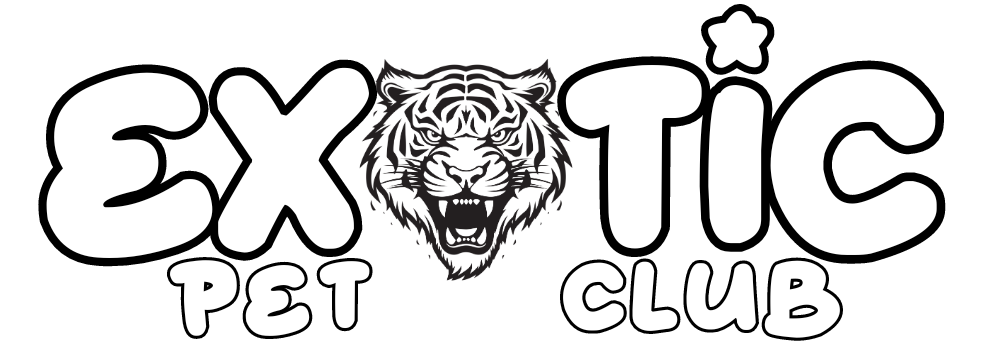Cleft lip is a rare congenital condition that affects a small percentage of French Bulldogs. Many pet owners may wonder if Frenchies with cleft lip can survive and live a healthy life. In this informative blog post, we will explore the survival rate and potential challenges for French Bulldogs born with cleft lip, as well as provide valuable insights for owners and breeders.
It is important to note that while Frenchies with cleft lip can face certain challenges, many of them can indeed survive and thrive with proper care and attention. Understanding the unique needs and potential complications associated with this condition is essential for pet owners, breeders, and anyone involved in the care of these special dogs. In the following paragraphs, we will discuss the potential obstacles as well as the positive outcomes for French Bulldogs born with cleft lip.
Key Takeaways:
- Frenchies with cleft lip can survive: Despite the challenges they may face, French Bulldogs with cleft lip can survive and live happy, fulfilling lives with proper care and treatment.
- Quality of life varies: The severity of the cleft lip and the individual dog’s overall health will impact their quality of life, so it’s important to work closely with a veterinarian to ensure proper management and treatment.
- Special considerations for care: Frenchies with cleft lip may require special feeding techniques, dental care, and monitoring for potential respiratory issues, so it’s essential for owners to be prepared for these unique needs.
Basics of Cleft Lip in Canines
Even though cleft lip is a relatively rare condition in dogs, it is important for dog owners to be informed about its causes, prevalence, and potential impact on affected individuals.
Definition of Cleft Lip
An abnormal opening in the upper lip, which may extend into the nose, is known as a cleft lip. This condition can range from a small, hardly noticeable notch to a severe separation that extends into the nostril and causes significant facial disfigurement.
Cleft lip can occur alone or in combination with a cleft palate, a related condition that affects the roof of the mouth. Both conditions can have a significant impact on a dog’s ability to eat and breathe properly.
Causes and Genetics of Cleft Lip in Dogs
For dogs, cleft lip is believed to be caused by a combination of genetic and environmental factors. In some cases, it may be associated with certain inherited traits or specific breeds predisposed to the condition.
Cleft lip can also occur as a result of intrauterine trauma or exposure to toxins or infections during the early stages of pregnancy. Additionally, certain medications and nutritional deficiencies during gestation can increase the risk of cleft lip in puppies.
Cleft lip can lead to a range of complications, including difficulty nursing, increased susceptibility to respiratory infections, and potential long-term dental issues. It is important for breeders and veterinarians to be aware of these risks and take appropriate measures to minimize the impact on affected puppies.
Prevalence in French Bulldogs
Dogs, particularly brachycephalic breeds like French Bulldogs, are known to have a higher prevalence of cleft lip compared to other breeds. The short, pushed-in muzzle characteristic of these dogs may contribute to the increased incidence of this condition.
While the exact causes of cleft lip in French Bulldogs are not fully understood, it is crucial for breeders and veterinarians to be vigilant and conduct appropriate health screenings to identify and address potential cases early on.
Diagnosis of Cleft Lip in Frenchies
Keep a close eye on your Frenchies for any signs of cleft lip, as early diagnosis is crucial for their overall health and well-being.
French bulldogs with cleft lip typically display certain symptoms and signs that can help identify the condition.
Identifying Symptoms and Signs
An abnormal cleft in the lip or palate is the most obvious sign of cleft lip in Frenchies. Other symptoms may include difficulty in feeding, nasal discharge, and frequent respiratory infections.
If you notice any of these signs in your French bulldogs, it is important to seek veterinary diagnosis and treatment as soon as possible.
The Role of Veterinary Diagnosis
Signs of cleft lip in Frenchies may not always be evident at birth, which is why veterinary diagnosis plays a crucial role in identifying and confirming the condition. Veterinary professionals utilize physical examinations and medical history to diagnose cleft lip in French bulldogs, ensuring they receive the necessary care and treatment.
Identifying cleft lip early on through thorough veterinary diagnosis can significantly impact the prognosis and quality of life for Frenchies with this condition.
Imaging and Further Diagnostic Procedures
One of the key tools in diagnosing cleft lip in French bulldogs is the use of imaging techniques such as X-rays and CT scans. These procedures allow veterinarians to visualize the extent of the cleft and assess any additional abnormalities in the oral and nasal cavities.
The role of imaging and further diagnostic procedures is essential in determining the best course of treatment and management for Frenchies with cleft lip.
Challenges and Risks for Frenchies With Cleft Lip
Now, let’s delve into some of the challenges and risks that Frenchies with cleft lip may face. These adorable pups can encounter a range of difficulties related to feeding and nutrition, breathing and respiratory issues, as well as an increased risk of infections.
Feeding and Nutrition Complications
Nutrition is a crucial aspect of a Frenchie’s well-being, and those with cleft lip may experience difficulties in obtaining proper nourishment. The cleft lip can make it challenging for them to create a proper seal while nursing, leading to potential feeding complications. Additionally, they may struggle with suckling and swallowing, which can impact their overall nutrition intake.
Breathing and Respiratory Issues
Cleft lip in Frenchies can also lead to breathing and respiratory issues. The opening in the lip can extend into the nose, causing difficulties in breathing, especially during early development. This can result in obstructed airways and potential respiratory complications.
Risks: Obstructed airways, respiratory complications, breathing difficulties, impact on early development.
Increased Risk of Infections
Feeding difficulties and compromised airways can contribute to an increased risk of infections for Frenchies with cleft lip. The challenges they face with feeding and breathing can make them more susceptible to respiratory infections, as well as potential complications from inadequate nutrition.
Risk: Susceptibility to respiratory infections, compromised immune system, potential complications from inadequate nutrition.
Treatment Options
Your Frenchies with cleft lip have several treatment options available to help them lead healthy, happy lives.
Surgical Interventions
One of the primary treatment options for Frenchies with cleft lip is surgical intervention. This typically involves one or more surgeries to repair the cleft lip and palate, allowing the affected puppies to eat, breathe, and vocalize normally. Surgery is typically performed when the puppies are a few months old, and may require ongoing follow-up procedures as they grow.
One important consideration with surgical interventions is the potential for complications. While the procedures can greatly improve the quality of life for Frenchies with cleft lip, there are risks associated with any surgery, including infections, scarring, and the need for additional surgical revisions.
Non-Surgical Management and Supportive Care
The non-surgical management and supportive care play a crucial role in the overall treatment plan for Frenchies with cleft lip. The care may include specialized feeding techniques, monitoring for respiratory issues, and supportive therapies to promote healthy development. It is important to work with a veterinarian experienced in cleft lip and palate in French Bulldogs to ensure that these non-surgical interventions are tailored to the specific needs of your puppies.
It is crucial for Frenchies with cleft lip to receive comprehensive care, including close monitoring for respiratory issues, special feeding techniques, and supportive therapies to promote healthy development. With proper management and care, many French Bulldogs with cleft lip can live full, healthy lives.
The Importance of Early Intervention
Non-surgical interventions and early intervention are crucial to the long-term health and well-being of Frenchies with cleft lip. Early intervention can help prevent complications, promote healthy development, and improve the overall quality of life for affected puppies. A multidisciplinary approach that includes veterinary care, nutritional support, and potentially speech therapy can greatly improve outcomes for French Bulldogs with cleft lip.
Prognosis and Quality of Life
Not all Frenchies with cleft lip survive, but those that do can have a good quality of life with the right care and interventions.
Factors Influencing Prognosis
One of the factors influencing the prognosis of French Bulldogs with cleft lip is the severity of the condition. The location and size of the cleft, as well as any associated health issues, can also play a significant role. Additionally, the age and overall health of the affected French Bulldogs can impact their prognosis. Knowing these factors can help veterinarians and owners make informed decisions about the best course of action for the puppies.
Success Rates of Surgeries and Interventions
For French Bulldogs with cleft lip, surgeries and interventions can be successful in improving their quality of life. With advances in veterinary medicine, the success rates of these procedures have been continuously increasing. The ability to address the cleft lip and any associated health issues can greatly improve the prognosis for affected French Bulldogs.
The success of these treatments largely depends on the expertise of the veterinary team and the overall health of the affected puppies. The use of advanced technology and techniques has led to positive outcomes for many French Bulldogs with cleft lip.
Long-Term Outlook for French Bulldogs With Cleft Lip
Life for French Bulldogs with cleft lip can be fulfilling and enjoyable with the appropriate support and care. Many of these dogs go on to live long and happy lives with their families. With regular veterinary monitoring and proper management of any ongoing health concerns, the long-term outlook for affected puppies is quite positive.
Influencing the long-term outlook for French Bulldogs with cleft lip are ongoing veterinary care, nutrition, and the overall health of the dogs. With attentive and proactive management, these French Bulldogs can thrive despite their condition.
Owner Education and Responsibilities
Despite the challenges, Frenchie owners need to be well-educated about the care and responsibilities involved in raising a Frenchie with cleft lip. It is crucial for owners to understand their role in providing the proper care and support for their pet.
Caring for Frenchies With Cleft Lip
On top of the regular care and nutrition that all Frenchies require, caring for a Frenchie with a cleft lip involves extra attention to their feeding and breathing needs. Owners will need to work closely with their veterinarian to create a specialized care plan that addresses the unique needs of their Frenchie.
Commitment to Long-term Health Management
With the special needs of a Frenchie with cleft lip, owners have the responsibility to commit to long-term health management. This includes regular check-ups, monitoring for any potential complications, and staying informed about new developments in cleft lip care.
Any signs of respiratory issues, such as labored breathing or frequent respiratory infections, should be addressed promptly by seeking veterinary care. It is important for owners to stay proactive in managing their Frenchie’s health to ensure their well-being.
Community Resources and Support Systems
On top of personal care, owners should also seek out community resources and support systems to help them navigate the unique challenges of raising a Frenchie with cleft lip. This can include joining online forums, seeking advice from experienced Frenchie owners, and connecting with local veterinary specialists.
Responsibilities such as finding reliable veterinary care, managing specialized nutrition plans, and staying informed about advancements in cleft lip care are essential for owners raising a Frenchie with cleft lip. Seeking out support and knowledge from the community can provide crucial assistance in meeting these responsibilities.
Do Frenchies With Cleft Lip Survive
Now that we have explored the topic of Frenchies with cleft lips, it is clear that these dogs can indeed survive with proper care and treatment. While their cleft lip may present some challenges, with the right support and medical intervention, Frenchies with cleft lips can lead happy and healthy lives. It is important for potential Frenchie owners to be aware of this condition and to seek out reputable breeders who prioritize the health and well-being of their puppies. Additionally, it is crucial for owners to work closely with veterinarians to ensure that their Frenchie receives the necessary care and attention to thrive despite their cleft lip. With proper care and love, Frenchies with cleft lips can live fulfilling lives and bring joy to their families.
Frequently Asked Questions (FAQ) about French Bulldogs with Cleft Lips
Q: What is a cleft lip and how does it affect French Bulldogs?
A: A cleft lip is a congenital condition where there is a gap or split in the upper lip. In French Bulldogs, this can occur due to genetic factors or environmental influences during gestation. It can affect their ability to nurse, eat, and may lead to respiratory issues.
Q: Can French Bulldogs with cleft lips survive and live a normal life?
A: While a cleft lip can present challenges for a French Bulldog, with proper care and medical interventions, they can indeed survive and live a fulfilling life. It may require special feeding techniques, regular veterinary check-ups, and in some cases, surgical correction to improve their quality of life.
Q: What special care does a French Bulldog with a cleft lip need?
A: French Bulldogs with cleft lips require attentive care to ensure their wellbeing. This includes feeding them in an upright position to prevent aspiration, monitoring their respiratory health, and providing a safe and supportive environment. Regular visits to a veterinarian experienced in treating cleft lip conditions are essential to address any related medical issues and maintain their overall health.















